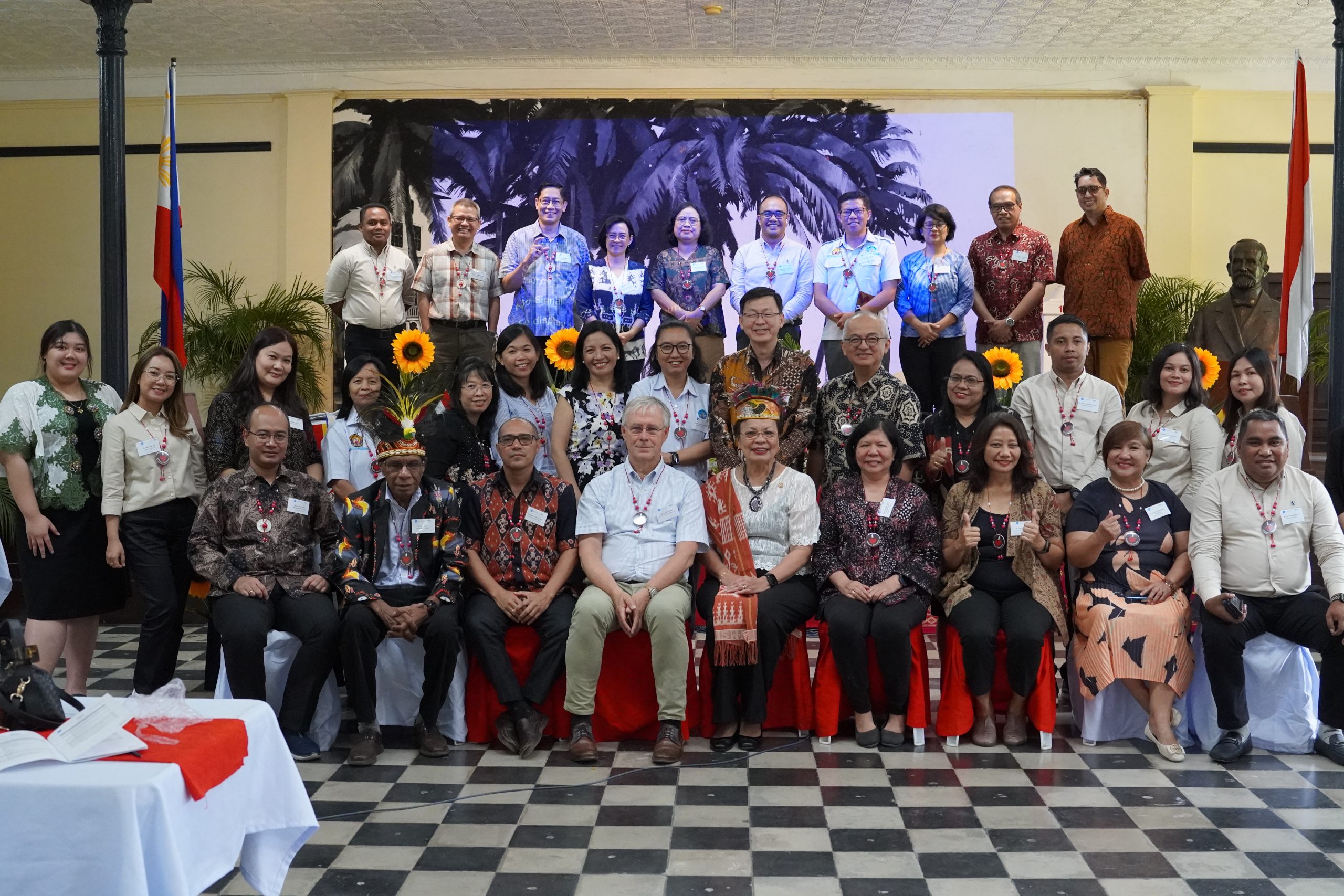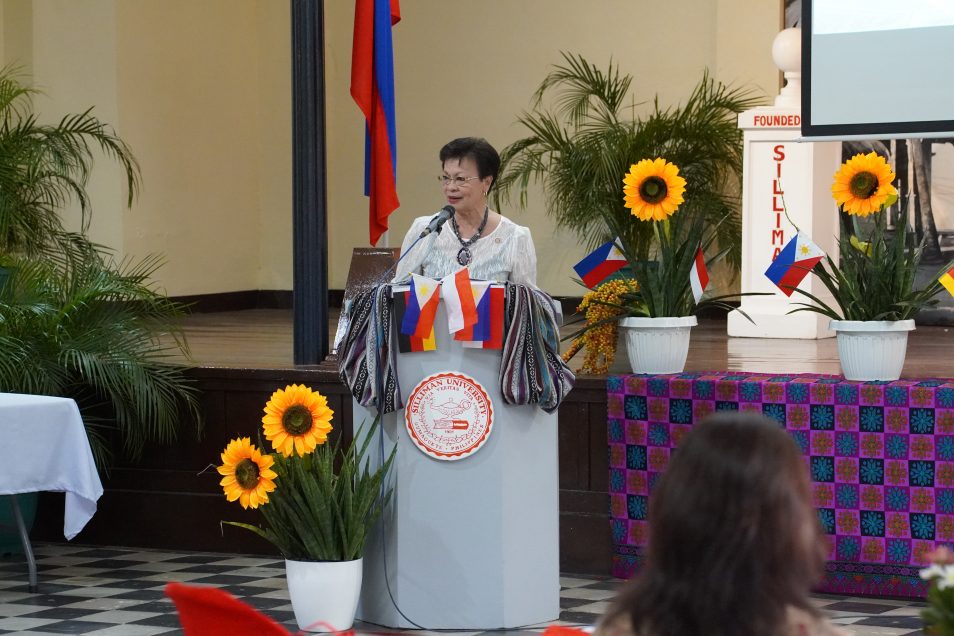
SU highlights service-learning, holistic education at int’l university management conference

Dr. Betty Cernol McCann, SU president, delivers a presentation on “Breaking Down the Silos of Research, Instruction and Community Engagement: Towards A Holistic Education in the Era of Knowledge Production” during the first day of the conference on October 9, 2023 at Silliman Hall.
Silliman University (SU) shared its best practices in integrating community engagement in teaching and research to achieve whole-person education, in the final conference of a university management training project under the Germany-based Dialogue on Innovative Higher Education Strategies (DIES) program on October 9, 2023.
SU welcomed academics and experts in university management from Indonesia, Germany, and the Philippines as one of the universities in Dumaguete City hosting the five-day conference.
The conference is the last event under the training and professional development project titled, “Nurturing a Culture of Excellence in University Management through Leadership Development and Partnerships,” developed by the Osnabrück University of Applied Sciences in Germany and Universitas Kristen Duta Wacana in Indonesia under the DIES program.
The project aimed to help improve the educational and management quality standards of participating universities in Indonesia: Universitas Kristen Duta Wacana, Universitas Kristen Wira Wacana, Universitas Halmahera, and Universitas Ottow Geissler.
Representatives from the participating Indonesian universities, such as rectors, vice-rectors, deans, and management staff, attended the conference as the project participants.
Breaking down silos
On the first day of the conference, Dr. Betty Cernol McCann, SU president, gave a presentation titled, “Breaking Down the Silos of Research, Instruction and Community Engagement: Towards A Holistic Education in the Era of Knowledge Production.”
McCann said breaking down the silos of instruction, research, and service requires a multifaceted approach involving curriculum changes, faculty collaboration, institutional support, and a shift in the culture of academia.
“When successfully implemented, this approach can lead to a more enriching educational experience, enhanced research outcomes, and greater community impact. More importantly, faculty and students alike become active learners, generate new knowledge, and become their own agency for whole-person education,” said McCann.
McCann presented three areas in SU where instruction, research, and service are integrated: its service-learning programs, engagement of students in research at the undergraduate level, and the adoption of a multidisciplinary and transdisciplinary approach in research.
Incorporating service into the curriculum through service-learning programs, McCann said, allows students to apply classroom knowledge to real-world problems and emphasize the practical application of what they learn.
As for a multidisciplinary and transdisciplinary approach in research, McCann said this recognizes the need to base learnings and new knowledge on “a complex web of realities” and that situations are multidimensional in nature.
“Multidisciplinary research involves bringing together experts from different disciplines or fields of study to work on a common problem. Transdisciplinary research takes collaboration a step further by aiming for a more holistic and integrated approach. It seeks to transcend the boundaries of individual disciplines and create a shared framework for addressing complex issues,” she added.
SU is hosting the first two days and the last day of the conference on October 13, where participants will discuss finance management, Project Action Plan reports, and their leadership journey.
St. Paul University University and Negros Oriental State University are hosting the third and fourth day, respectively, with discussions focused on human resource and university quality management.
The DIES program offers training courses, dialogue events, projects, and partnerships for the professionalization of institutional management processes, alignment of education to international quality standards, and strengthening of research capacities.
The DIES program is jointly coordinated by the German Academic Exchange Service (DAAD) and the German Rectors‘ Conference (HRK) and funded by the Federal Ministry for Economic Cooperation and Development (BMZ).

Attendees of the “Nurturing a Culture of Excellence in University Management through Leadership Development and Partnerships” project’s final conference gather at Silliman Hall.


